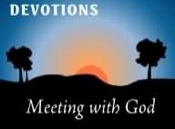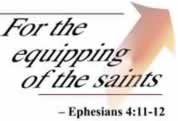
Ecclesiastes 9:13-10:20
The Bible Teaching Commentary
Living Wisely in an Insane World
Bible Study & Questions
Paul J. Bucknell
Ecclesiastes 9:13-10:20: Living Wisely in an Insane World is a Bible study with questions to help understand and apply the text. 3 Studies: A) The Value of Wisdom (Ecclesiastes 9:13-18) B) The Impact of Foolishness (Ecclesiastes 10:1-7) C) The Difficulty of Life (Ecclesiastes 10:8-20).
__________________________________
A Brief Introduction to the Book of Ecclesiastes
Was Solomon instilling a stronger moral ethic in his people? Was he mobilizing his people? If in fact those who loved God, would be his best citizens, what about those that were not very interested in listening to the invisible God hidden from their sight? Is it possible that he was trying to persuade these individuals to be good members of the society? 
Perhaps he was sharing his wisdom so to shape their minds and life. He was instilling in them a reason to live uprightly even if they did not believe in the afterlife. He spoke regarding their carnal interests and earthly perspectives and showed them that their carnal nature would be benefitted more if they lived uprightly.
Solomon has journeyed through many life experiences. He was astute enough to take time to pause, observe and evaluate those life experiences. Two things remain important: Living a happy life and staying on top of things so one can life a happy life. Wise living is needed for the latter. Living wisely has its reward, though not always true. It still results in a better life.
Starting in chapter 10, Solomon passed on some of his best bits of wisdom and reflections. While finishing the discussion of value of wisdom at the end of chapter 9, he hints that the good way (the wise way) does not always result in the best life. In chapter 10 he uses his pithy sayings to convince some of the need for and practical use of wisdom.
Summary: If a good life is our goal, then it is better to life a wise life rather than a foolish one, though no one can be certain of a happy life.
A) The Value of Wisdom (Ecclesiastes 9:13-18)
Solomon carefully closes off his statement on the value of wisdom by introducing a thought which he will develop in chapter 10.
13 Also this I came to see as wisdom under the sun, and it impressed me. 14 There was a small city with few men in it and a great king came to it, surrounded it, and constructed large siegeworks against it. 15 But there was found in it a poor wise man and he delivered the city by his wisdom. Yet no one remembered that poor man. 16 So I said, "Wisdom is better than strength." But the wisdom of the poor man is despised and his words are not heeded. 17 The words of the wise heard in quietness are better than the shouting of a ruler among fools. 18 Wisdom is better than weapons of war, but one sinner destroys much good. (Ecclesiastes 9:13-10:18).
- Why did he write in verse 9:16, "Wisdom is better than strength?"
- Have you ever seen the words of a wise man despised? (see 9:16).
- What might he mean by, "One sinner destroys much good" (9:18).
Conclusion
To act wisely is always better but sometimes wisdom does not always ostensibly pay off because of the wickedness of foolish people. We should still act wisely and be not discouraged. God is overseeing the world and acknowledges the good that we do.
B) The Impact of Foolishness (Ecclesiastes 10:1-7)
Many things are observable by all, but not all can equally discern the principles behind what is seen. Even fewer can learn and apply them to their lives.
Solomon begins this last major section of the book clear in his purpose. He wants us to adopt wise living. He reminds us of the impact of foolishness and how it lessens anyone's chance of having a good life. It is true, he has again and again reminded us, that our lives might call for trouble and early death even if we choose death, but the chances are that wisdom will bring the best in this earthly life.
10:1 Dead flies make a perfumer's oil stink, so a little foolishness is weightier than wisdom and honor. 2 A wise man's heart directs him toward the right, but the foolish man's heart directs him toward the left. 3 Even when the fool walks along the road his sense is lacking, and he demonstrates to everyone that he is a fool. (Ecclesiastes 10:1-3)
4 If the ruler's temper rises against you, do not abandon your position, because composure allays great offenses. 5 There is an evil I have seen under the sun, like an error which goes forth from the ruler-- 6 folly is set in many exalted places while rich men sit in humble places. 7 I have seen slaves riding on horses and princes walking like slaves on the land. (Ecclesiastes 10:4-7)
- What is the principle taught in 10:1, "Dead flies make perfume stink." How can we apply this to our personal lives?
- What principle is being taught in 10:2, "A wise man's heart directs him toward the right, but the foolish man's heart directs him toward the left"? Why is this?
- What principle is being taught in 10:3, "Even when the fool walks along the road his sense is lacking, and he demonstrates to everyone that he is a fool"?
C) The Difficulty of Life (Ecclesiastes 10:8-20)
Solomon further illustrates the meaningless of life with pictures from nature about us.
8 He who digs a pit may fall into it, and a serpent may bite him who breaks through a wall. 9 He who quarries stones may be hurt by them, and he who splits logs may be endangered by them. 10 If the axe is dull and he does not sharpen its edge, then he must exert more strength. Wisdom has the advantage of giving success. 11 If the serpent bites before being charmed, there is no profit for the charmer. 12 ¶ Words from the mouth of a wise man are gracious, while the lips of a fool consume him; 13 the beginning of his talking is folly, and the end of it is wicked madness. 14 Yet the fool multiplies words. No man knows what will happen, and who can tell him what will come after him? 15 The toil of a fool so wearies him that he does not even know how to go to a city. (Ecclesiastes 10:8-15)
16 Woe to you, O land, whose king is a lad and whose princes feast in the morning. 17 Blessed are you, O land, whose king is of nobility and whose princes eat at the appropriate time--for strength, and not for drunkenness. 18 Through indolence the rafters sag, and through slackness the house leaks. 19 Men prepare a meal for enjoyment, and wine makes life merry, and money is the answer to everything. 20 Furthermore, in your bedchamber do not curse a king, and in your sleeping rooms do not curse a rich man, for a bird of the heavens will carry the sound, and the winged creature will make the matter known. (Ecclesiastes 10:16-20)
- What are the examples he gives in verse 10:9? What is the principle behind them?
- What principle does he state is being taught with the dull axe in 10:10? How can we apply this to our own lives?
- Solomon mentions or implies rulers several times in chapter 10 (10:4,5-7, 16-20). What does he warn us of in 10:5-7? What are the consequences?
- What other problem can happen when foolish rulers appear (10:16-20)? Can anyone share of a society either in the presence or the past that has had these things happen?
- Through chapter 10, Solomon passes hints on how a wise person should respond to foolish rulers (10:4, 20). What are they? From the general proverbs in chapter 10, are there any other thought?
- What areas of our society do you think foolishness has 'taken over?' Education? Medical? Government? Financial? Moral? Others? How are you going to live a sane life?
Conclusion
Great decadence has occurred in our generation. Foolishness first seeped in and then poured in, flooding each sector of society - financial, ethical, religious and social. If we are not paying close attention, we accept the media's explanation and are caught off guard, thinking it is merely a different party's policy. It will be in time be corrected. But Solomon the King has seen that there are consequences that the society will pay.
In any case, if one puts his sole hope in his 'good' ways, he should relax a bit and release foolishness has its consequences. It is still best to live upright lives, but there will be times in life that will not 'make sense.' Do not be overly bitter. Rather triumph in living and responding rightly (10:4).
Next -> The Works of God (Psalm 19:1-6)







